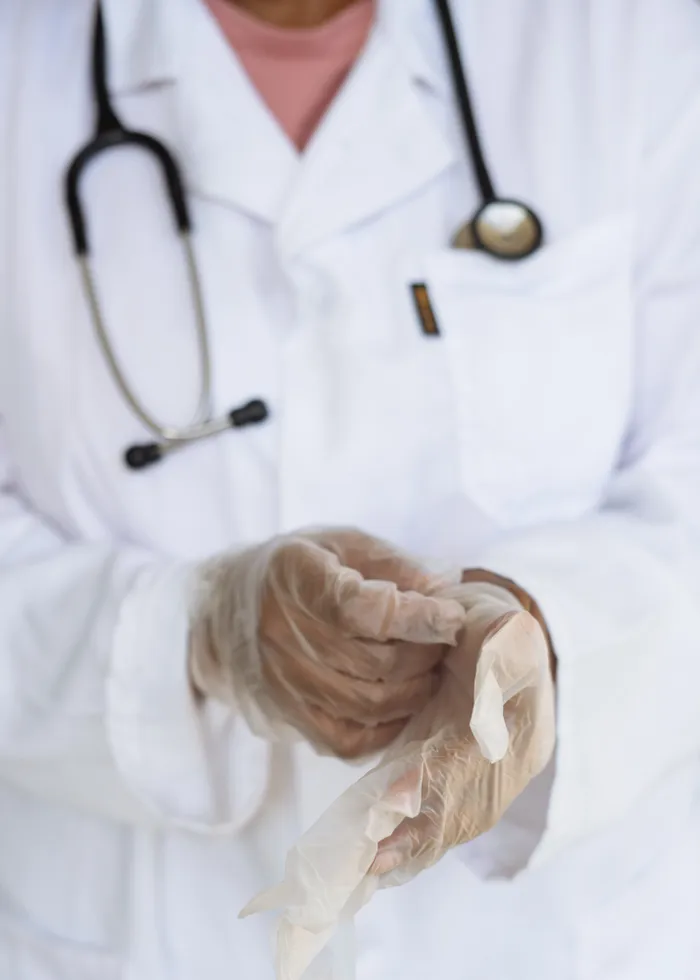Medical expert suggests 8 routine check-ups for men

Men are 24% less likely than women, according to the Centers for Disease Control and Prevention, to visit their doctors for annual physicals and other preventive care. Picture: Pexels
Men often dislike having to go to doctors’ appointments, and they only visit the doctor when they feel unwell or if they need a certain issue to be treated.
Men are 24% less likely than women, according to the Centers for Disease Control and Prevention, to visit their doctors for annual physicals and other preventive care.
Essential health examinations, often known as screens, are tests performed by a doctor to look for diseases and other disorders even before you may exhibit any symptoms. Early disease detection often makes conditions easier to treat.
Speaking about the most crucial exams for males is Dr Morgan Mkhatshwa, clinical executive of Bonitas Medical Fund.
1. Colorectal Cancer Screening
Polyps, which are tissue growths, are checked to determine whether a colon or rectum contains cancer. Starting at age 45, you should start getting these tests if you have a higher-than-average risk of cancer (such as a family history). Depending on the results of your exam, a doctor may recommend a colonoscopy every 3 to 10 years to examine your entire colon.
A faecal immunochemical test (FIT) which also screens for colon cancer by looking for hidden blood in the stool, should be annually.
2. Prostate cancer
One of the most prevalent forms of cancer among males is prostate cancer. It takes place in the tiny walnut-shaped gland that creates seminal fluid, which feeds and carries sperm.
It is the one type of cancer from which you have the best chances of recovering because the growth is often slow. Although some prostate cancers spread slowly and may require little to no therapy, others are aggressive and can spread very quickly. Most older men with prostate cancer do not die from the condition.
Early detection of prostate cancer, when it is still contained within the prostate gland, greatly increases the likelihood of successful therapy treatment. Men from the age of 50 (40 – 45 for those at high risk, with a family history of prostate cancer) should have an annual prostate exam.
How do you get checked for prostate cancer?
To determine the concentrations of PSA in your blood, your doctor will advise a blood test. Men with prostate cancer may have increased levels of PSA, a chemical produced by the prostate. The results of a rectal exam must support this.
3. Weight and BMI
The body mass index (BMI) is used to check if you are a healthy weight. To calculate your BMI:
Divide your weight in kilograms (kg) by your height in metres (m)
Then divide the answer by your height again
It’s crucial to check your blood sugar because over 4.6 million diabetics are living in South Africa. Type 1 and Type 2 diabetes are the two primary subtypes. Despite being two distinct disorders, they both require careful management and treatment because they are significant.
When diabetes goes undetected, one of the major issues arises. It’s crucial to get tested because this can cause amputation, blindness, heart attack, stroke, kidney failure and impotence.
5. Blood pressure
When blood pressure remains high over time, it is referred to as hypertension (high blood pressure). It is frequently referred to as the “silent killer” because roughly 33% of those who have it are unaware of it.
If your blood pressure is too high, it puts additional strain on your arteries and heart. If hypertension is left untreated, it can also lead to renal failure, eye issues and heart disease.
6. Skin checks
Skin cancer is brought on by abnormal skin cell growth, which most often, but not always, occurs on sun-exposed skin. Melanoma, basal cell carcinoma and squamous cell carcinoma are the three main kinds of skin cancer.
At least once a month, thoroughly examine your skin, and if you frequently develop moles, visit a dermatologist to have the moles “mapped”. Skin malignancies are virtually always treatable if detected and treated early. Consult a doctor frequently to have your skin examined if there is a history of skin cancer in your family.
7. Cholesterol levels
Too much cholesterol can cause the walls of your blood vessels to get narrower and stiffer. If clogging worsens over the years, it can cause a heart attack or stroke in adults. Doctors can find out what your cholesterol level is by testing it in your blood.
8. Testicular cancer
A lump, hardness, size, pain, or any other change in one or both of their testicles can all be signs of testicular cancer. Men between the ages of 15 and 55 might be wise to self-examine their testicles. This works best after a warm shower and will aid in the early detection of cancer.
To find the proteins produced by the testicular cancer cells, a blood test can also be performed.
Keep in mind that detecting any disease or health issue early enough can often save your life. For this reason, it’s crucial to visit your doctor for routine check-ups.
Related Topics: